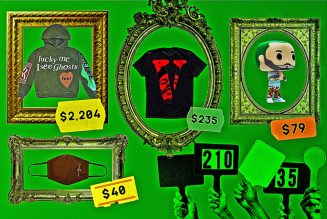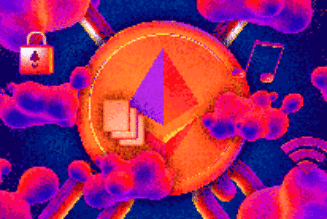
When it comes to music publishing catalogs, which genres command the biggest dollars? Are all royalties created equal? And should you keep an eye on your matching rights?
Buying and selling music publishing catalogs is filled with costly pitfalls. The complexity of publishing contracts, copyright law and royalty streams create pitfalls that can add unforeseen costs and hamstring the buyer or seller with unwanted terms. Billboard spoke with leading attorneys and experts to identify trouble spots and provide solutions.
How should a catalog seller prepare?
Deals can become “lopsided” when a seller cannot match the buyer’s institutional knowledge and ability to value a catalog, says Scott Bradford of DLA Piper: “They don’t look into the value and instead go with what the buyer is offering.” Chris Hull of Citrin Cooperman stresses that the seller should get “even footing with the buyer” by assembling a team: a transaction attorney, an accountant and a valuation firm. Brokers guide the seller through the process and “bring business acumen to those that don’t have it.” Hull also recommends that the buyer review the last three to five years of royalty earnings to accurately forecast future revenue.
What are the tax consequences if I sell my catalog?
The Internal Revenue Service allows individual songwriters to treat income from the sale of self-created music works as capital gains rather than personal income, meaning the sale is taxed at no more than 20%, rather than the marginal rate for personal income, which peaks at 36%. But the capital gains rate could be on the way up: President-elect Joe Biden campaigned on a tax plan that included a call for an increase, either by treating capital gains as personal income or doubling the capital gains tax.
What does exclusivity mean in a catalog sale?
A buyer and seller will enter into an agreement of exclusivity during which the seller cannot engage with other would-be buyers. In the past, shopping periods were drawn out and sellers received more than one bid. Today, sellers move faster and want exclusivity with buyers during the due diligence process, says Lisa Alter of Alter Kendrick & Baron. “Now buyers are really putting their best deals forward immediately and trying to lock deals up to keep them out of the hands of their competitors.”
What is the net publisher’s share? What is a “multiple”?
The net publisher’s share (NPS) is the amount a composition or catalog pays a publisher annually after payments have been made to the songwriters. A multiple refers to a catalog’s price relative to its NPS. For example, in today’s market, a catalog can sell for 16 to 20 times NPS — meaning that if a buyer pays $20 million for a catalog with $1 million NPS, the multiple is 20. Note that even though catalog acquisition prices are often described in terms of the multiple, the buyer and seller negotiate a price based on future royalties; they do not negotiate the multiple paid.
What is a catalog’s chain of title, and why does it matter?
When performing due diligence, the prospective buyer should confirm the chain of title: the sequence of ownership of a song’s rights from origin to the present. This is especially important with older titles. A prospective buyer will review songwriters’ contracts to see if any rights have been assigned to other parties. The buyer might find partial rights have been assigned (either the publishing rights or writer’s share), and rights differ by country.
What is a “matching right,” and why should it be in a contract?
A matching right gives a publisher the opportunity to match a third party’s bid for the songwriter. A matching right provides the publisher a chance to acquire a songwriter’s share that it has administered. A songwriter can accept a matching right but might want the right to expire a certain number of years after the contract’s end date. “I try to limit the term of the matching right,” says attorney Casey Del Casino. From the songwriter’s point of view, the matching right can subdue bidding if potential buyers expect the publisher to trump their offer. The matching right extends if the parties extend the contract. But a songwriter’s heirs are also bound to a matching right, and in a worst-case scenario, those heirs sell the songwriter’s share without knowing the matching right exists and fall into breach of contract.
Why are some catalogs more valuable than others?
Some genres receive more radio play and steady streams over the long term. “Classic rock and classic R&B trade the highest, especially if it comes with administration rights,” says Michael Poster of Michelman & Robinson. “There’s not as much concern with decay” in airplay or streaming. Multiples of 20 times NPS “may apply to a current pop catalog,” says Rob Sherman of DLA Piper. But those multiples don’t apply to “production music or an old rock song. Set expectations appropriately.”
Are all royalties treated the same when valuing a catalog?
Some royalties play a larger role in catalog valuation, says Jonathan West of Latham & Watkins. A buyer needs to consider the source of a composition’s royalties. “Public performance and streaming royalties are relatively valuable because they are consistent,” says West. “[Synch] is unpredictable, and it’s a one-time payment.” What’s more, too many synch placements in TV, film and commercials can indicate a song has been overlicensed and could have diminishing value.
What is a “key man” clause?
A buyer of a small publisher should look for a key man clause, a contractual term that lets songwriters terminate their contract if a person key to their success — a “key man” — departs the company. If so, a buyer may be forced to retain that person who has the relationship with a valuable songwriter.
How long does a copyright last?
The length of a copyright depends on the year the song was written. For works created after 1978, the copyright extends for the author’s life plus 70 years. Copyright for works created before 1978 last for 95 years. The copyright for a song written by two or more people lasts 70 years past the death of the last surviving author. So, for example, a post-1978 work by a songwriter in his or her 40s or 50s could attract buyers who would own the copyright for the next century (30 years of the author’s life plus 70 years). When a song is a work-for-hire, the company, not the songwriter, that employed the writer owns the rights.
Does the buyer or seller perform due diligence?
The prospective buyer should perform a due diligence review to confirm the chain of title, registrations, revenue streams and contract terms. Less often the seller also performs due diligence, and may see an increased payoff that justifies the cost. Alter says that in her experience, “the seller winds up making more money” if the seller does the due diligence, because the buyer puts greater trust in the numbers behind the valuation.
What is a termination right?
Songwriters have the right to regain ownership of their publishing rights 35 years after the work was published or 40 years from the date of grant. Congress included this right to termination in the 1976 Copyright Act to give songwriters a second bite at the apple: the chance to negotiate better terms or sign a contract with a different publisher. To exercise the right, the songwriter must notify the publisher of the right to terminate no more than 10 years and no fewer than two years before the termination date. However, if the work is acquired, a new 35-year period begins when the new publisher initiates its publishing services or 40 years after the rights were acquired. West advises buyers that the termination window will “open 35 years from the date of grant, which would be the earliest possible publication date.” So, for a song published in 2010, the termination date is 2045.
What happens if a songwriter doesn’t exercise a termination right?
A failure to exercise a termination right means the chance is lost — forever — which can have real financial consequences. Del Casino offers this example: A songwriter who hasn’t invoked his termination right extends his publishing contract, thus extending the termination right; if the publisher then sells the publishing right for $1 million, the songwriter doesn’t get a penny of that sale — because he didn’t use the termination right to take ownership of the publishing right. “The new publisher still pays the writer’s share, but you don’t own it,” says Del Casino. From a buyer’s perspective, a possible termination changes the value of a catalog. “Maybe a certain percentage of the purchase price is withheld until we know whether or not they are going to be terminated,” says attorney Erin Jacobson.
What happens when a third party has claims to a catalog?
“Sometimes there are a lot more people tangentially involved in a transaction than you would know,” says Alter. The buyer might learn that former managers, ex-spouses or previously unknown offspring (it happens, attorneys say) can claim a stake in a catalog. “Other than asking the question of the seller and doing judgment and lien searches, as a buyer you’re relying on due diligence requests, the representations, and warranties and lien searches,” says Poster.










